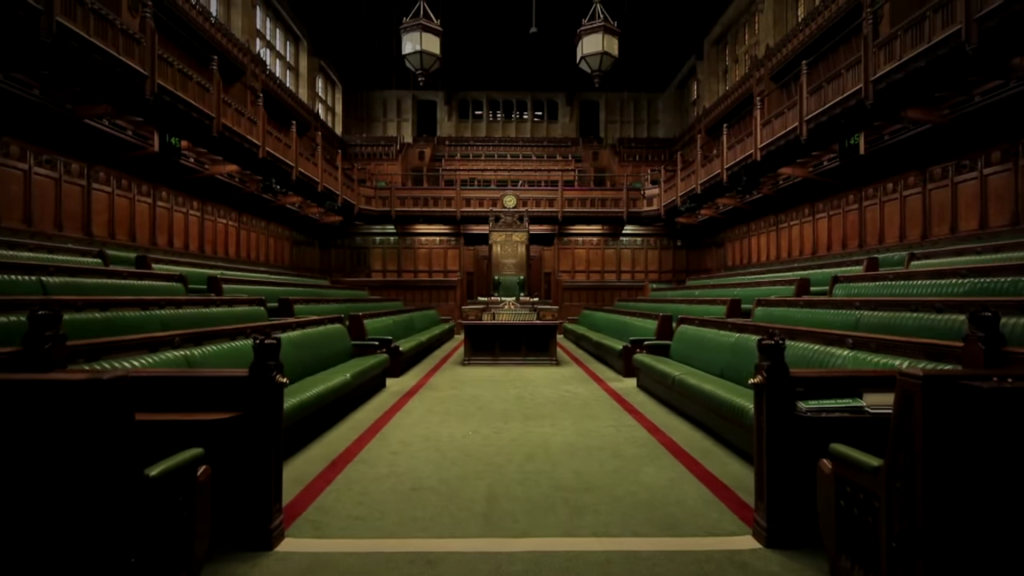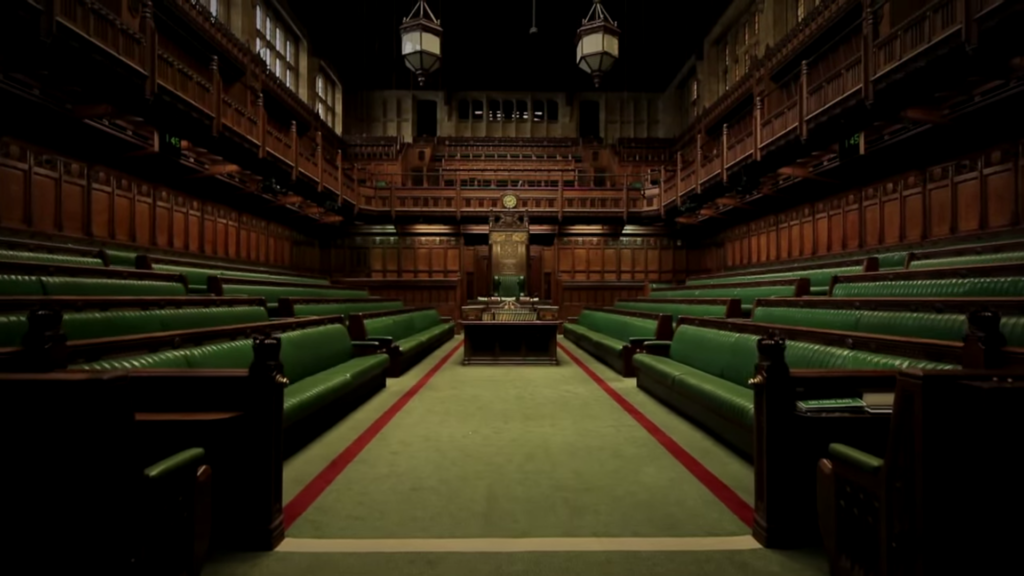
Into The Woods
Parliamentarians were today held hostage in the
Commons on a day when they had planned to be in their constituencies, talking
to their constituents. Of course, for some MPs this is a blessing. Their
constituents bang on about Brexit almost as much as their colleagues, and as
with their colleagues solutions are in small supply but robust certainties are
abundant. Nonetheless, a Friday trapped in the chamber whilst the sun shines on
far Right activists baying for blood just a hop, skip and jump away is not fun.
Particularly given that today’s vote was - in the Government’s own parlance and
at their own perverse insistence - ‘meaningless’. Speaker Bercow refused to let
them bring the whole shebang back for a third time of asking and so the
Government has bisected its ‘deal’ – taking out the non-binding Political
Declaration and returning only with the legal bit, the Withdrawal Agreement. It
is that Withdrawal Agreement that MPs today rejected.

Of course, just because the vote was not a ‘Meaningful Vote’ that does not mean that the decision does not have consequences. Far from it. Had the Withdrawal Agreement passed, the automatic extension to Article 50 (putting off our exit until May) would have been triggered. As things stand, it has not been triggered and therefore the UK now faces a series of forced choices. Either we leave in the middle of April, with no deal, or we go back to the EU and ask for a much longer extension so that we can sort ourselves out. Both of these options come fraught with dangers.
If the UK drops out of the EU in April - without any deal - then all of the consequences of a No Deal Brexit become reality. The matter of the few weeks difference between today (when we were originally supposed to leave) and April 12th (the new date) is unlikely to have made significant difference to this country’s preparedness for a No Deal scenario. There will be very substantial economic disruption and UK supply chains will suffer immediate and potentially long-running disruption. It will be bad for businesses and in a small number of cases personally catastrophic for individuals and families. On the other hand, it will mean that this part of the Brexit process is, finally, over.
If the UK instead asks the EU for a much longer extension (potentially as much as 21 months), there will be significant political repercussions. The EU is not obliged at all to give us more time. Most analysts believe that, with Germany’s economy in trouble, Angela Merkel will persuade her colleagues to accept a lengthy extension in order to avoid No Deal. But that is not a given and we will need unanimous support if we are to succeed. Therefore, there will be conditions placed upon a long delay. At the very least the UK will be obliged to participate in the European elections in June - something almost all of the parties are opposed to but which The Independent Group is now prepared for, having finally registered as a political party. The other likely condition will fall under the concept of ‘a significant political event’, which the EU has said will be required if we are to further delay. What does this mean? Well, it could potentially be a referendum or a general election - a participative process to fundamentally shift the politics of Brexit and to give the EU faith that they will be offered democratic clarity. A referendum has long found itself at the very bottom of Theresa May’s hierarchy of preferences. And it is difficult to see how she could agree to a general election if the Prime Minister intends to remain Leader of the Conservative Party for even a few more weeks – they were never going to let her lead them into another election, they certainly won’t now that she has publicly agreed to leave soon.
So, these are the choices that Theresa May faces – officially. Unofficially, as ever with Brexit, there’s a bit of room for manoeuvre on either side. Firstly, in parallel with the decisions that face the Government, Parliament is now free to embark once more on its own process by which to dictate the terms of Brexit. Last week there was no majority for any of the options but two clear favourites – a referendum (which, of course, fits the bill of ‘significant democratic event’ on the EU’s terms) and a Customs Union. It is possible that next week Parliament will arrive at a majority for one – or both, combined – of those options. They would then instruct the Government to comply but – of course – the Government might say no. At which point a general election becomes not only possible but in fact likely - because if the House won’t back the Government then we need a new House and a new Government, or at least a new mandate.
Dominic Cummings – mastermind of the Vote Leave campaign and SW1 pin-up thanks to Benedict Cumberbatch – likes to talk of ‘branching histories’. By this he means that the future is not written and that as we make choices we open up, and close off of course, other potential paths. Theresa May is stood in her treehouse as Parliamentarians work feverishly both to saw off branches that they do not wish her to take and to construct new paths through the foliage. Today’s vote likely reduces her Withdrawal Agreement to sawdust. And so what is left? No Deal offers one branch. A referendum offers another. But leaving with a deal…? That looks like a leap too far for the UK now.